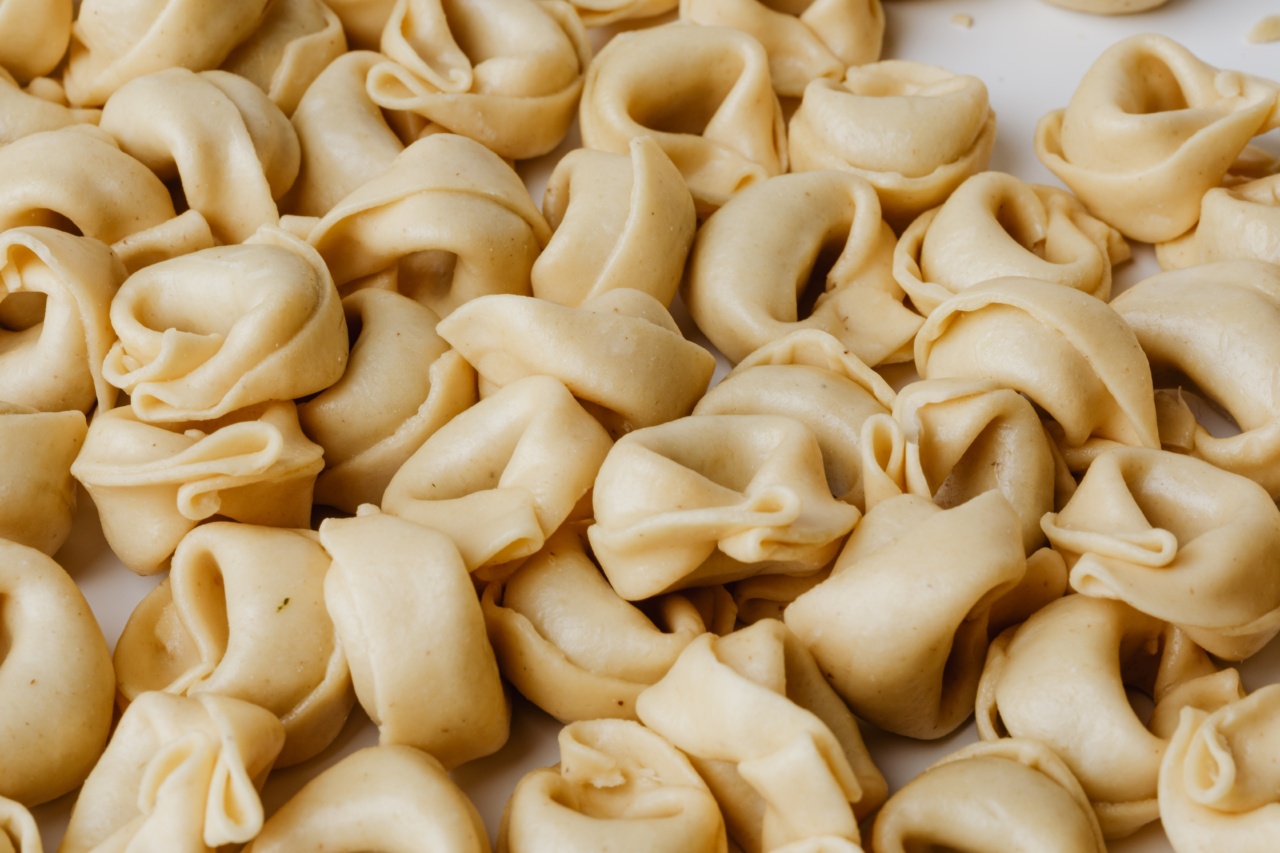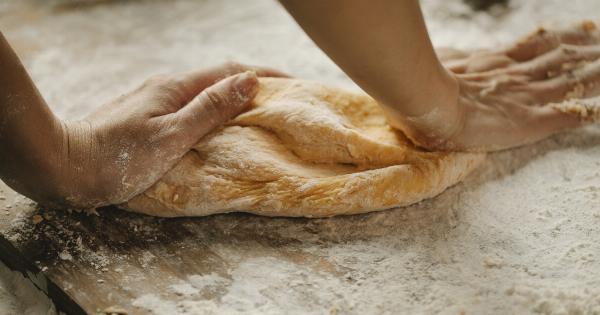When it comes to baking, many of us can’t resist the temptation to indulge in some uncooked dough. Whether it’s cookie dough, cake batter, or bread dough, there’s something undeniably delicious about the raw and gooey texture.
However, indulging in uncooked dough poses several health risks that should not be ignored. In this article, we will explore why uncooked dough can be harmful to your health and provide insights into ways to minimize the associated risks.
The Dangers of Raw Eggs
One of the key ingredients found in most baking recipes is eggs. While eggs are a great source of protein and essential vitamins, consuming them in their raw form can be dangerous. Raw eggs may contain Salmonella, a bacteria known to cause food poisoning.
Ingesting food contaminated with Salmonella can lead to symptoms such as nausea, vomiting, abdominal cramps, diarrhea, and even fever. Young children, pregnant women, the elderly, and individuals with weakened immune systems are particularly susceptible to severe complications from Salmonella infection.
Uncooked Flour and E. Coli
Another ingredient commonly found in dough recipes is flour. Similar to raw eggs, uncooked flour can also harbor harmful bacteria such as Escherichia coli (E. coli).
While flour may seem harmless, it is important to note that it is a raw agricultural product. Flour can become contaminated during harvest, storage, or transport, and the process of cooking is necessary to eliminate any potential pathogens.
E. coli infection can result in severe symptoms ranging from abdominal cramps and diarrhea to more serious conditions such as kidney failure.
It is crucial to avoid consuming uncooked flour to protect yourself and your loved ones from potential health risks.
The Risks of Raw Yeast
When it comes to bread dough, yeast is a fundamental ingredient responsible for fermentation. However, consuming uncooked yeast can also pose health risks.
The active yeast cells can continue to ferment in your digestive system, leading to discomfort, bloating, and gas. In rare cases, excessive yeast growth in the intestines can cause infections and complications in individuals with weakened immune systems.
Preventing Raw Dough Risks
Now that we are aware of the health risks associated with uncooked dough, let’s explore some preventive measures to ensure our safety:.
1. Avoid Tasting Uncooked Dough
While it may be tempting to sneak a taste from the mixing bowl, it’s crucial to resist the urge. Avoid consuming any uncooked dough, regardless of how tempting it may seem. Remember, the delicious taste isn’t worth compromising your health.
2. Use Pasteurized Eggs
If a recipe calls for raw eggs, consider using pasteurized eggs instead. Pasteurization involves heat treatment that kills harmful bacteria while preserving the egg’s nutritional value.
This will significantly minimize the risk of Salmonella contamination.
3. Opt for Heat-Treated Flour
To further reduce the risk of E. coli contamination, opt for heat-treated flour. Heat-treated flour has been processed at a temperature that kills potential pathogens, making it safer to consume in its uncooked form.
Look for heat-treated flour options in your local grocery stores or consider heat-treating the flour at home.
4. Allow Dough to Fully Cook
When baking, always ensure that your dough is fully cooked before consuming it. Baking at the recommended temperature will eliminate any bacteria, ensuring the safety of the final product.
5. Educate Children and Family Members
It is essential to educate children and family members about the dangers of uncooked dough. Make sure everyone understands the risks involved and the importance of practicing safe baking habits.
Encourage them to avoid tasting uncooked dough to protect their health.
6. Store Flour Properly
Proper storage of flour is crucial in preventing contamination. Ensure that flour is stored in a cool, dry place and in air-tight containers. This will help reduce the likelihood of bacteria growth and protect the quality of the flour.
Conclusion
While there is great joy in baking and indulging in delicious treats, it is important to prioritize our health and be mindful of the risks associated with uncooked dough.
Raw eggs, uncooked flour, and yeast all pose potential health hazards that can lead to food poisoning and other complications. By following preventive measures such as avoiding uncooked dough, using pasteurized eggs and heat-treated flour, ensuring proper cooking, and educating our loved ones, we can enjoy baked goods without compromising our well-being.






























